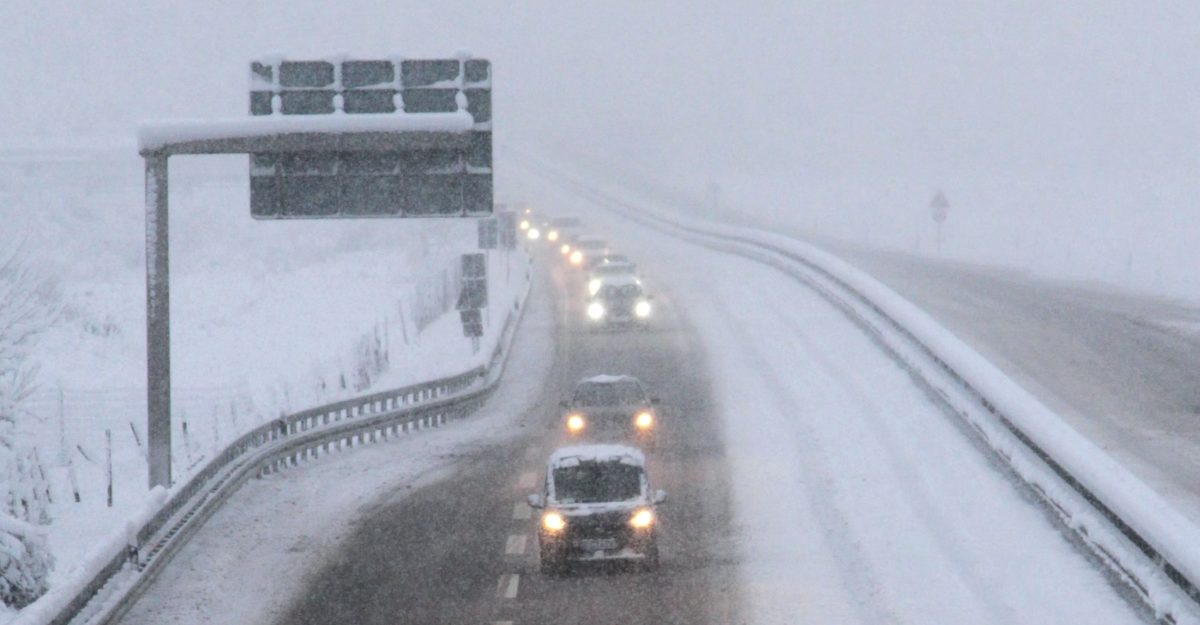Car Accidents in Bad Weather: Next Steps for Injured Ontarians

When severe weather strikes, it can wreak havoc for drivers across Ontario.
Slippery road conditions and reduced visibility typically leads to an uptick in car accidents in Ontario.
➡️ Toronto Crashes, Car Accidents & Local News
➡️ Accident Benefits in Ontario
➡️ Ontario Car Accident Claims – Time Limits
➡️ Car Accident Settlement Amounts
However, many people in the province are unaware of their legal rights or what they should do if they are injured in a car accident.
Here are 4 things you need to do if you are hurt in a collision with another driver.
1. Gather Accident-Related Evidence
Once it’s safe for you to exit your vehicle after the accident, make sure you get the other driver’s:
- Name
- Licence plate number
- Phone number
- Address
- Car make and model
- Insurance company and policy information
If anyone witnessed the accident, ask for their names and contact information as well.
After collecting information from the other driver and potential witnesses, take photos and video of the scene.
While documenting the damage, note the road conditions as well as the conduct of other drivers in the area.
SEE ALSO
• Fired in Ontario for Being Late to Work due to Weather?
• BUYER BEWARE! How to Choose a Personal Injury Lawyer
2. Get Medical Attention
Following the car accident, your health and well-being should be your primary concern. If your injuries are severe, you need to head to the nearest hospital immediately.
Even if you believe that you only suffered minor injuries, you should still see your doctor as soon as possible.
- Example: A woman was driving through an intersection in downtown Toronto when she was hit from behind by another car. She pulled over and exited her car once it was safe. The driver who hit her vehicle apologized and admitted that he didn’t have his winter tires on. The woman exchanged information with the driver and went home. A few days later, her neck felt extremely sore and she decided to see her doctor. During her appointment, her doctor informed her that she was suffering from whiplash.
Informing your doctor of your symptoms allows them to accurately diagnose your injuries and recommend appropriate treatment options.
If you are following the treatment plan outlined by your physician, but your condition isn’t improving, ask them to provide some alternatives.
In the event that you do need to file a personal injury claim after the car accident, it’s crucial that your injuries are properly documented by health professionals.
SEE ALSO
• Brain Injuries and Concussions: How a Lawyer can Help
• Spinal Cord Injuries: What You Need to Know
3. Report the Accident
In Ontario, who you have to report a car accident to depends on how severe the situation is.
Some incidents could require you to inform local police immediately, while others might involve notifying a collision reporting centre as well as your insurance provider.
Reporting to the Police
Following a car accident, you must contact the police if:
- An individual involved in the collision has been injured or killed
- A cyclist or pedestrian has been hurt or killed in the car accident
- Private or public property has been damaged
- You suspect the other driver is operating their vehicle under the influence of alcohol or another substance
- One of the drivers involved isn’t licensed or doesn’t have insurance
If the amount of damage in the accident exceeds $2,000, it’s also your responsibility to report the incident to the police.
Depending on the situation, police may or may not show up to the scene of the accident.
Reporting to a Collision Reporting Centre
If the estimated damage to all vehicles involved in the accident is more than $2,000, you must inform a collision reporting centre of the incident.
In Ontario, you have 24 hours to notify the nearest centre and file a report.
However, some collision reporting centres in the province have limited hours of operation (i.e. 6 a.m. to midnight). If the closest centre isn’t open at the time of the accident, you should file a report as soon as their hours of operation resume.
When filing a report at the collision reporting centre, make sure you have your:
- Driver’s licence
- Contact information
- Vehicle information
- Car insurance details (including policy number)
- Vehicle information
In addition to this information, you should provide the centre with as many details about the accident as possible.
Reporting to the Insurance Company
Regardless of whose fault the car accident was, it’s extremely important that you contact your insurance broker immediately after the incident.
You only have seven days from the date of the accident to inform your insurer of the accident.
If you don’t notify your insurance company within this timeframe, your policy or benefits may be terminated.
Once your insurer has been informed of the car accident, they will:
- Investigate the incident
- Review your insurance policy
Following their investigation and review, your insurance company will inform you of the benefits you are entitled to.
This could include coverage for medical bills and other injury-related expenses.
SEE ALSO
• Difficulties Working Because of a Car Accident: Top 5 Things to Know
• Calculating Compensation: How the Injury Calculator Works for You
4. Speak to a Vehicle Accident Lawyer
It’s important to understand your legal rights and entitlements in the event that you end up in a serious collision with another driver.
The vehicle accident lawyers at Samfiru Tumarkin LLP have years of experience helping victims of car crashes navigate the process to get proper compensation.
You may have a legal claim for a variety of things, including:
- Medical bills
- Lost wages
- Car rentals
- Property damage
- Pain and suffering
Injuries from a car accident can profoundly impact your life. It can take a tremendous toll on your physical, emotional, and financial health.
If you suffer an injury during a car accident, contact the experienced Ontario personal injury lawyers at Samfiru Tumarkin LLP for a free consultation.
Our lawyers can review your situation, discuss your options, and help you secure the compensation that you are owed.



